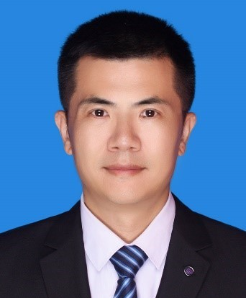| Prof. Yang CongSouth China University of Technology, China Title: Robot 3D Embodied Artificial Intelligence and Autonomous Manipulation Yang Cong is a National Distinguished Young Scholar and a doctoral supervisor. His main research areas include robot vision, machine learning, medical image analysis, big data processing, and robot servo control. He holds positions such as a board member of the Chinese Association of Graphics and Image Processing and deputy director of the Youth Work Committee of the Chinese Association of Automation. He has led multiple major projects, including the National Key R&D Program, the Instrument Special Fund of the National Natural Science Foundation, Distinguished Young Scholar and Excellent Young Scholar programs, key projects, and various Chinese Academy of Sciences research initiatives. To date, he has published over 80 articles in domestic and international journals and conferences and has contributed to one Springer monograph. Currently, he serves as an editorial board member for IEEE Transactions, Acta Automatica Sinica, and other well-known domestic and international journals. |
| Prof. Yong XuGuangdong University of Technology, China Vice Dean of the School of Automation at Guangdong University of Technology, Professor, Doctoral Supervisor, High-Level Talent of the Ministry of Education, Guangdong Young Pearl River Scholar. Long-term engagement in complex system control theory research. Led research projects including the National Natural Science Foundation of China and the “Next Generation Artificial Intelligence” Major Project under the Science and Technology Innovation 2030 initiative. Selected as a core member of the Ministry of Science and Technology's Key Field Innovation Team and Guangdong Special Support Program Local Innovation and Entrepreneurship Team. Published 78 papers in top-tier control journals such as Automatica. Hold 58 authorized invention patents, with one patent generating RMB 500,000 in commercialization revenue. |
| Prof. Guibin BianInstitute of Automation, Chinese Academy of Sciences, China GuibinBian, Ph.D., is a researcher at the Institute of Automation, Chinese Academy of Sciences, and the chief scientist of a National Key R&D Program. He is a member of the Youth Innovation Promotion Association of the Chinese Academy of Sciences and a recipient of the Royal Society Newton Fund. He serves on the IEEE Technical Committee on Neural Systems and Robotics and is an expert committee member of the China Public Service Robot Standardization Working Group. His research focuses on medical robotics, intelligent control, and human–machine interaction technologies. He has led projects including the National Key R&D Program on Intelligent Robots, key joint projects funded by the National Natural Science Foundation of China, international cooperation projects, and youth projects. He has developed a series of robotic platforms, such as vascular interventional surgical robots, liver tumor puncture robots, dual-arm robots, multi-degree-of-freedom force-position interaction devices, and lower limb rehabilitation robots. To date, he has published over 50 SCI/EI-indexed papers and holds more than 20 authorized domestic and international invention patents. |
| Prof. Yan PengShanghai University, China Prof. Yan Peng, a doctoral supervisor, currently serves as the Dean of the College of Future Technology, Executive Dean of the Artificial Intelligence Research Institute, Dean of the Unmanned Surface Vehicle Engineering Research Institute at Shanghai University, and part-time Vice Chairperson of the Shanghai Women's Federation. Her research focuses on marine unmanned surface vehicle systems and equipment, as well as ocean environment kinetic energy self-capturing technology and its components. She has received the National Distinguished Young Scientist Fund, the National "Ten Thousand Talents Program" Young Top Talent award, the Shanghai Youth Top Talent award, and the Shanghai Young Outstanding Academic Leader Program. As one of the principal leaders, she has led her team to develop more than 15 series of unmanned surface vehicles, carrying out numerous missions in the East China Sea, Yellow Sea, South China Sea, and Antarctica. In recent years, she has been awarded the National Technology Invention Award (Second Class), the National Science and Technology Progress Award (Second Class), two Shanghai Science and Technology Progress First Class Awards, the Shanghai Technology Invention Award (Second Class), among more than ten other honors. |




